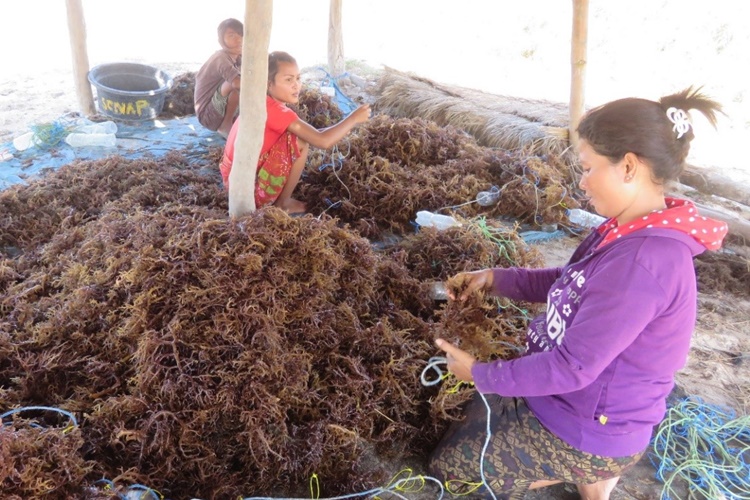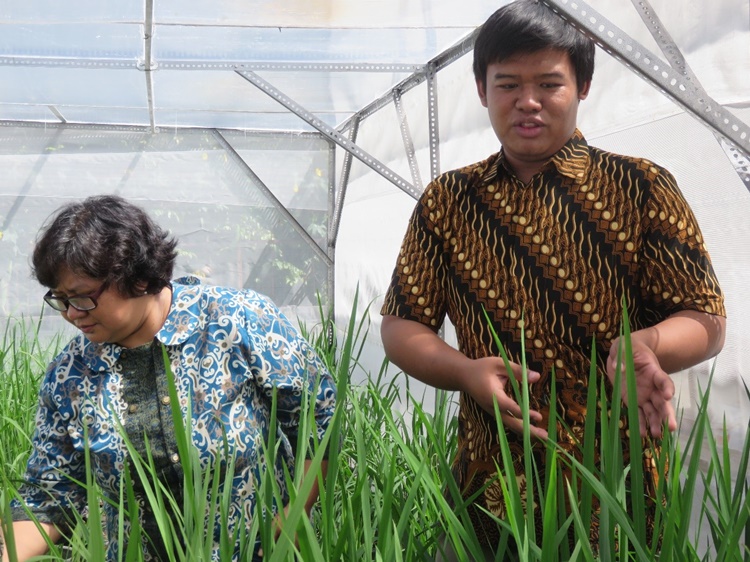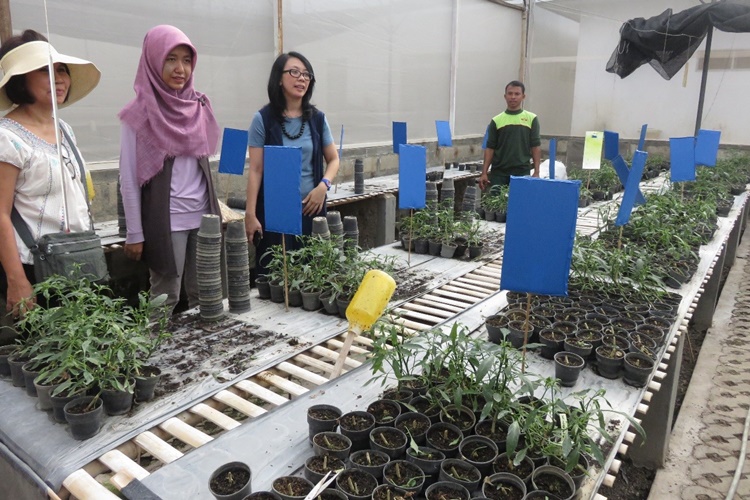SFRT grantees Dr. Nuva Nuva, Dr. Tri Rini Nuringtyas, and Dr. Fenny Martha Dwivany and their respective research teams brought the SEARCA team to each of their project sites in a series of monitoring and evaluation visits in Lombok, Yogyakarta, and Bandung, Indonesia on 10–13 August 2016.
The first project, led by Dr. Nuva, focuses on the socioeconomic impact of integrating marine aquaculture with seaweed farming in supporting community livelihood toward the implementation of the Blue Economy program in Lombok, Indonesia. The SEARCA team, together with the proponents of the project, visited the National Seaweeds Center and Mataram Marine Technopark in Lombok. Both institutions conduct studies on the symbiotic relationships that come into play when seaweed farming is integrated with fisheries or other types of marine aquaculture production. The project specifically aims to analyze the social, environmental, and economic impact of the Blue Economy program, its effect on women empowerment, and evaluate multistakeholder perception of its implementation. Sustainability, technology transfer, and continuity are some of the key issues that have now transpired in the course of conducting the project. With access to technical and financial support, the research team claims that Lombok has the potential to become a producer of high value products from seaweeds.

The SFRT-funded project in Yogyakarta, Indonesia, headed by Dr. Nuringtyas, looks into the development of pigmented rice for rural communities in the districts of Kidul, Bantul, and Sleman. Among the team’s objectives is to look at both the production and marketing aspects of pigmented rice farming in these areas.
The team performs experiments on the chemical and physical defense mechanisms of different cultivars of pigmented rice and evaluates their resistance to pests and diseases. Resistance and physiological performance evaluation are conducted to identify the most resistant and most susceptible cultivars. The team also aims to identify the role and prospects of pigmented rice for farmers as well as to analyze consumer preferences in view of the marketing aspect. The proponents capitalize on this project to help link the farmers to a wider market and promote sustainable production of pigmented rice in suitable areas in Indonesia.

Meanwhile, Dr. Dwivany’s research project in Bandung looks into the use of the biomaterial nano-chitosan as bio-fungicide against Phytoptora capsici on different chili cultivars in West Java Province. Nano-chitosan are nanoparticles from chitosan, the structural element found in the exoskeleton of crustaceans. In collaboration with East West Seed Company Indonesia, the team studied the effect of using nano-chitosan on the resistance level of chili cultivars. The research team utilized East West’s Plant Pathology Laboratory and green house facilities in conducting the experiments.
Phytoptora capsici is a fungus, which is a serious pathogen on chili. Fungicide residues, apart from causing environmental pollution, also promote the growth of this type of resistant fungus. Thus, the research team aims to harness the bio-fungicide properties of nano-chitosan for sustainable agro industry applications, specifically for chili, which is one of the economically important crops in Indonesia. In the long-run, the development of nano-chitosan as bio-fungicide also aims to help farmers adopt safer and environment-friendly cultivation methods in chili farming.
The team that conducted the monitoring and evaluation of the projects is composed of Ms. Julita G. Ventenilla, Unit Head, Internal Audit; Ms. Carmen Nyhria G. Rogel, Program Specialist and Ms. Maria Katrina R. Punto, Research Assistant, both of Research and Development Department.
SEARCA’s SFRT Program aims to provide start-up funds to researchers and scientists in the Southeast Asian region who want to make significant contributions in research, development and knowledge dissemination but are hindered by lack of funds. It also seeks to expand SEARCA’s reach in the areas of research, capacity building, and knowledge contribution on inclusive and sustainable agricultural and rural development in the region. (Ma. Katrina Punto)
